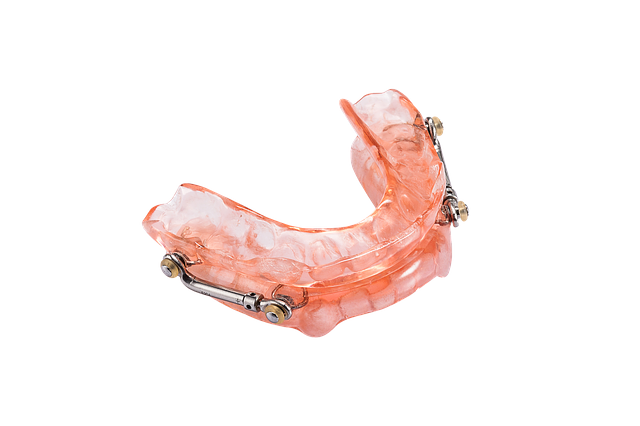If you find yourself not sleeping well at night, sleep apnea might be happening. Quite a few people are sleep apnea sufferers, and they know how hard it can be to deal with. Fortunately, there are effective methods for dealing with it. The following paragraphs has ideas you can use to deal with this affliction.
If you want relief from sleep apnea symptoms, one way to get it is to start playing a woodwind instrument. Research done by specialists in Germany indicates you can train your muscles in the upper airway by playing the didgeridoo. These muscles are the key to dilation of the air passage and proper breathing as we sleep. This means that if you practice regularly, you will notice a reduction in sleep apnea symptoms and snoring.
Excessive weight is a primary cause of sleep apnea for many people. Every attempt should be made to lose weight if a person is overweight and has sleep apnea. These people should set themselves up with a weight-loss plan that involves exercise and calorie reduction. It may be worth it to look into diet plans that reduce the amount of carbohydrates that you eat.
Do not neglect your CPAP machine if it has been prescribed to you. Sleeping while using a CPAP can be difficult to adjust to at first, but it is not impossible. Four hours of use daily is recommended with a CPAP machine to see the medical benefits. Keep trying to use your machine, and work up to a full night slowly if you need to.
Mouth Guard
Sleep apnea can be present in children. Symptoms may include mouth breathing, hostility, irritability, bad grades, hyperactivity and inattentiveness. Such symptoms may mimic ADHD, so discuss the matter with your family physician and consider the possibility that your child has sleep apnea.
If your sleep apnea is the result of narrow airways, try using a mouth guard when you sleep. These devices are designed to correct your airways and allow you to breathe properly during the night. Speak with your doctor to learn more, and get yourself fitted for a mouth guard if you think it will help.
If you suffer from sleep apnea, avoid using sleeping pills. Sleeping pills relax throat muscles to the degree that they no longer properly function. Find other ways to solve your troubles with staying asleep, because sleep apnea mixed with sleeping pills can be a potentially life-threatening mix.
Playing music on a wind instrument can be beneficial to your sleep apnea problems. Regular playing of the didgeridoo has been found by German scientists to strengthen the muscles of the upper airway. Upper airway muscles manage dilation and stiffening of airway walls. Therefore, you should regularly play these instruments due to the fact that they decrease your sleep apnea symptoms.
Your doctor might ask you to write down when you sleep and wake. You would record your total hours of sleep each night, as well as symptoms that occur. Ask others in your home to let you know if you snored, woke up without realizing it due to your snoring or if you moved a lot in your sleep. This helps the doctor discern whether you have sleep apnea or not.
Even kids can suffer from sleep apnea. If you find your child is innatentive, always tired or uses their mouth to breath and not their nose, they may suffer from this condition. Often these symptoms are similar to ADHD, but you need to talk to a physician and consider sleep apnea as a cause as well.
Weight loss can have a major impact on those with sleep apnea. The condition is common in overweight patients that have larger neck circumferences. Losing weight can reduce pressure on the airways and cause better airflow when breathing at night.
Sleep on your side if you want to avoid sleep apnea. Sleeping on your back does not allow enough air to get into your airways. Give sleeping on your side a try, and see if your symptoms improve.
Do not sleep on your back if sleep apnea affects you. Many individuals afflicted with sleep apnea are back sleepers, which just boosts the chances that their airways collapse. If you are the type of person who rolls over while sleeping, use pillows in order to maintain a side sleeping position.
Sleep apnea generally is diagnosed by studying your medical and family history and having a thorough physical exam. You can do sleep studies and the things the doctor finds will guide him on making a decision on what can be done.
People that have sleep apnea need the help of a doctor. Cases differ from patient to patient, and the same treatment will not be effective in every case. Weight loss can ease sleep apnea for many people, even though apnea can be experienced by thin people too. Non-invasive options like the CPAP machine are highly successful for millions of sufferers. However, there are people who prefer surgery over apparatus. The key is to find the treatment that fits your individual solution and then sticking with it so that you can gain control of your life again.
Your doctor might ask you to write down when you sleep and wake. Write out how many times you wake up in the middle of the night, or how ofter you get tired throughout the day. You can ask your spouse or a family member to let you know you how often you snore at night. Your doctor can use this information to determine if you actually suffer from sleep apnea.
If you have sleep apnea you should not smoke. Smoking cause the airways to swell, making sleep apnea worse. Common ways to quit smoking include smoking cessation programs and nicotine replacement products, such as gums. Getting through the first month is the toughest. After that, the nicotine starts to leave your body and the cravings lessen.
Sleep Apnea
You can get some relief from your sleep apnea symptoms by doing tongue exercises. Press your tongue on the roof of your mouth, hold it there for at least three minutes. That will make your tongue and throat stronger and cut down the likelihood of those muscles relaxing and blocking the airway while you’re asleep.
Get to bed at a regular time every night if you suffer from sleep apnea. Your sleep apnea is already affecting your sleep. Do whatever you can to restore your natural sleeping patterns, and you will find that you can handle the apnea a bit easier. The biggest parts are going to bed and getting up at the identical times each and every day.
There are a few simple solutions sleep apnea sufferers can look into. Schedule a nightly bedtime and stick with it. Be certain you create an environment in your bedroom that is conducive to sleep. Insomnia is a real danger if your sleeping arrangements are sub-par.
If you will be away from home and you’re suffering with sleep apnea, always remember to bring along the CPAP machine with you. Never go a night without your CPAP, because you need it if you have sleep apnea. Most CPAP machines come with a travel bag designed for just this purpose. You can use it to carry your CPAP easily and safely anytime you leave home.
You may not even notice that you have apnea. Waking up gasping for air makes a lot of noise, but it may not wake you up completely. Those symptoms might be part of what you’re experiencing as sleep apnea.
Treat any sinus or allergy problems you might have if you do have sleep apnea. Sleep apnea is a difficult enough condition to deal with. Additional swelling in the airways and extra mucus will make sleep apnea worse. By treating your allergies or sinus problems, you will be more likely to get a full night’s rest and have energy for the day.
If you suspect that you might have sleep apnea, see your doctor and get a referral for a sleep study. A sleep test can diagnose both your sleep apnea and its severity. After you are diagnosed you have to figure out how to treat your sleep apnea.
Patients who suffer from sleep apnea might want to consider losing weight as a means to relieve the symptoms. Sleep apnea is correlated with being fat and having a large neck. If you lose that weight, the pressure on your air passage will be lessened, which will improve the quality of your breathing.
A majority of sleep apnea sufferers sleep on their backs. You may wish to consider a different sleeping position. Sleeping in a position, such as on your side, can help alleviate the problems caused by constricted airways.
Consulting a doctor is important, but there are several options you can try at home. A couple of good examples are controlling your weight and quitting smoking. Coffee, caffeine and alcohol should also be avoided before bed.
Remain in touch with your physician and attend all scheduled doctor’s visits following your diagnosis. The doctor can help you by providing plenty of information on how to treat your condition. Anytime you want to try a newer treatment method, consult your physician beforehand to be sure it is safe and appropriate. Also meet up with them afterward to review effectiveness.
Exercise your tongue and minimize sleep apnea symptoms. One simple exercise is to put your tongue against the roof of your mouth and hold it there for a couple of minutes. This can improve the strength of your tongue and throat muscles and decrease the chance that they will relax too much and cause breathing difficulty.
If you are diagnosed with sleep apnea, then do not consume alcohol close to bed time. Alcohol relaxes the muscles in your throat and may put you into a very deep sleep. You don’t have to give up alcohol entirely; just shy away from drinking close to bed time.
Making the muscles in your throat much stronger is an excellent way to help the alleviate the sleep apnea. Relaxed or excessive tissue can obstruct air passages and make breathing difficult. If your muscles are stronger, their chances of collapsing and blocking your airways are minimized.
Work out the muscles in your jaw and throat. Dealing with your weaker internal muscles can help you alleviate sleep apnea. In fact, you could solve the problem entirely.
Avoid excessive drinking if you are a sleep apnea sufferer. Drinking can overly relax throat muscles, causing blocked airways and snoring. Avoiding alcohol altogether is best, but if you must drink then limit yourself to one drink taken several hours before bedtime. You need to do this to ensure that drinking has no effect on your sleeping patterns.
Anyone who has sleep apnea should try to take an afternoon nap to help make up for the loss of sleep they suffer during the night. When you’re sleep deprived, you do not function well in your health may be compromised. Let yourself sleep each afternoon for about 20 minutes to help refresh yourself. Don’t sleep any longer than that or you may disrupt your sleep at night.
Pick up a wind instrument to play. You will like the music and help exercise muscles that can better your breathing. Making these muscles stronger reduces sleep apnea symptoms.
Be compliant and go through with your treatments. You might be tempted to not use your CPAP some nights, but the effect will be apparent the next day when you are not as productive as normal. Be assured that your symptoms will come back quickly and affect your life again without continuous treatment.
As you can see, there are various methods of dealing with sleep apnea. Try everything so that you know what is your best personal option. It is through applying these suggestions that you will find some much needed rest. Sleep apnea is something that does not have to take over your daily life, as long as you do something about it.
Try exercises that will tone the muscles in your airway which can alleviate minor sleep apnea. If you can strengthen your throat muscles, you will see that they will be less likely to collapse in your sleep. A few humming exercises and playing with wind instruments can help you increase throat strength. Any combination of these things can help make your throat stronger.
Don’t be scared if you’re not sure where to start learning about cervical neck pain pillow
nurse home waterproof mattress protector,mattress and box spring covers. If you look carefully, you will find several interesting resources on cervical neck pain pillow
nurse home waterproof mattress protector,mattress and box spring covers. The article above is your number-one source for great information. Use the advice provided here, and don’t be afraid to look for more!













